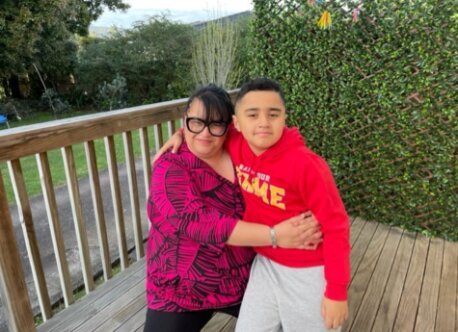If you're a frequent visitor to Healthify, why not share our site with a friend? Don't forget you can also browse Healthify without using your phone data.
Talking to kids about scary news
Key points about talking to kids about scary news
- Living in a world where news is available 24/7 has its bonuses. However, if the news is constantly negative it can be overwhelming.
- Alarming stories about things like climate change, shootings and disease outbreaks can sometimes be too much for adults to digest, let alone children
- As a parent, the digital age has made it more difficult to control what kind of news stories children are exposed to.
- Here are some tips to help if your child has seen, heard or read a scary news story that upsets them.

1. Talk about it
Talk with your child about what they’ve read or seen and how they’re feeling. Be open to discussing it – changing the subject or not talking about it doesn’t help your child. It will make them more upset and uncertain.
2. Be age-appropriate
Keep the conversation age-appropriate. Talking to a 6-year-old versus a 12-year-old about a news event is going to be different as they are at different levels of development and understanding. All kids are different so tailor your discussion to what you know they can understand.
3. Explain the facts
Kids are often worried about news stories because they have the facts wrong or their imagination runs wild. Make sure you stick to the facts and give them the correct information.
4. Limit exposure at home
While you can’t always control what news your child is exposed to outside the home, you have more control over what they’re exposed to inside the home.
5. Put things in a global perspective
If something scary has happened overseas, keep a global perspective. Depending on the story, let your child know that while this may have happened, it’s in another country and unlikely to happen here. If it has happened here, explain the chance of it happening again is very small or non-existent.
6. Talk about good news stories
While there may be a lot of bad news stories around, there are always good ones too. Watch, read or discuss those stories with your kids so they can get a sense of balance in the world.
7. Normal to be worried
Reassure your child it’s normal to feel worried or upset over a news story so they don’t feel so alone.
8. Encourage them to ask questions
Encourage your child to ask questions. This helps them understand the issue and to feel better as they have expressed their concerns.
9. Check your news sources
Make sure you are getting your news from a reputable source so you are armed with the facts. Some websites or news feeds are unreliable, alarmist and not fact-based.
10. Do something
Empower your children by encouraging them to carry out a positive action. This will help them understand that they are able to effect change in the world around them. This may involve doing an act of kindness such as laying flowers, writing a letter or donating pocket money to a charity helping victims. Or it could involve taking part in a climate change march or setting up a recycling system in your own home.
Talking to children about scary world events(external link) Mental Health Foundation, UK
Talking to children about COVID-19(external link) Ministry of Education, NZ
How to strengthen children & teens against anxiety after news of a world trauma(external link) Karen Young, Psychologist, Australia
Credits: Healthify Editorial Team. Healthify is brought to you by Health Navigator Charitable Trust.
Page last updated:





